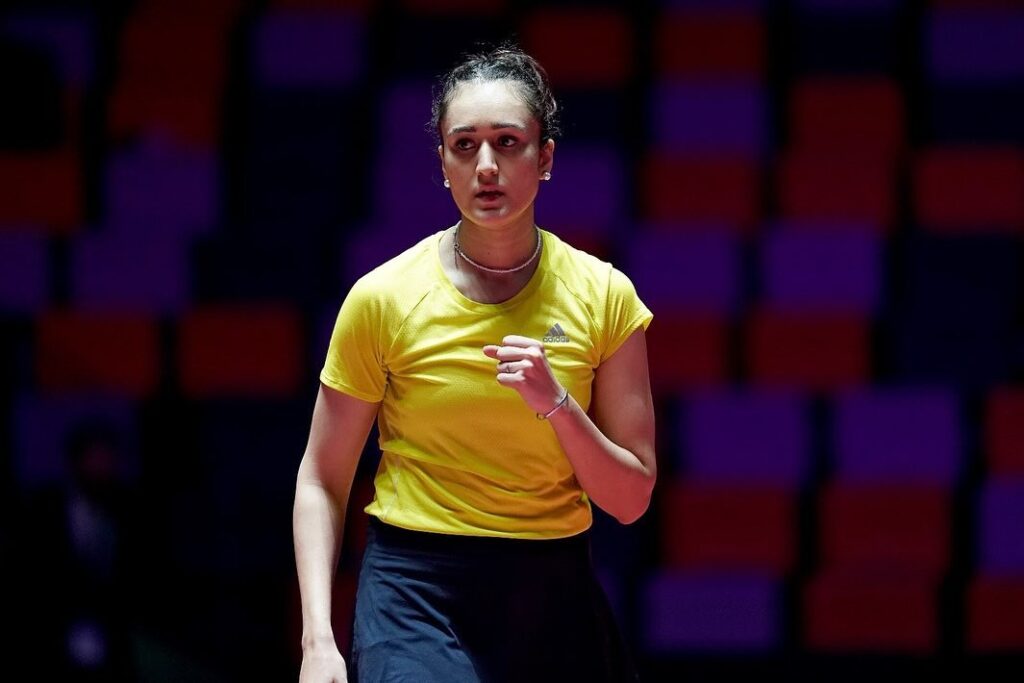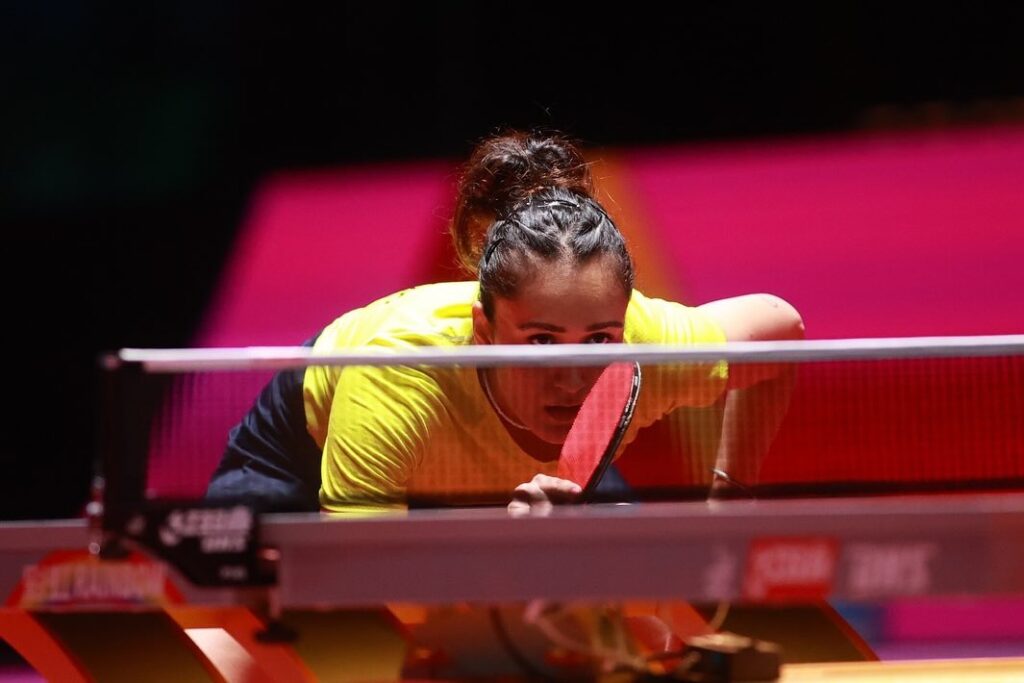
Manika Batra’s run at the WTT Champions in Montpellier has brought new recognition and inspiration for table tennis in India. The star Indian paddler, Batra, currently World no. 30 and a multiple Commonwealth Games medalist, had to bow down to China’s Qian Tianyi in the quarterfinals by 8-11, 8-11, 10-12. However, this feat was historic–the first time an Indian table tennis player had reached the WTT quarterfinals.
Though her loss against the Chinese paddler marked the end of her campaign in Montpellier, her performance up to the quarterfinals was commendable. She defeated world no. 14, Bernadette Szocs of Romania in the pre-quarters. It was proof that Indian players can challenge top players on the global stage. Tianyi, who defeated Batra in the last eight, also created an upset by defeating World No. 4 Yidi Wang. This shows the depth of the tournament and highlights that Batra’s performance was right at that level.
Batra’s journey in Montpellier builds on her accomplishments in another French city a month back—the French capital, Paris. She and her fellow paddler, Sreeja Akula, reached the Round of 16 in the singles event at the Paris Olympics 2024, marking the first-ever feat for any Indian table tennis player.
The women’s team, comprising Batra, Akula and Archana Kamath, lost to Germany in the quarterfinals. The men’s team, however, exited in the first round, losing to heavyweights China. Though the TT contingent in Paris didn’t make the podium, reaching the quarterfinals in singles marked a historic feat and showcased the sport’s upward trajectory in the country.

Now after Montpellier, the consistency shows. For the young players, Batra’s journey is an inspiration. Her progress serves as a reminder that efforts in a traditionally underrepresented sport are paying off.
In Indian sports, certain athletes have transcended competitions, becoming poster figures who carry the sport forward. Batra is one such athlete — a role model for many young athletes willing to take up the sport. For a sport where Olympic medal hopes are still a distant reality, it is essential to have such a character who can take the sport forward. Batra has done that for Indian women’s table tennis.
The legacies of Neeraj Chopra, Sachin Tendulkar, or PV Sindhu show how important it is to have role models and the impact it has. With her performance in Montpellier and being a part of another history, Batra elevated her glorious career to a different level.
Her journey has brought significant attention to the sport. In a country where franchise tournaments are on the rise, investors need icons who can be the face of their properties. Batra is one such icon in the UTT (Ultimate Table Tennis) – India’s premier table tennis franchise tournament.
This is all a chain reaction, where a player will influence a bunch of other players, who will create an ecosystem, which will attract investments and the circle will go on. In Indian women’s table tennis, with the recent successes, and multiple laurels in the Commonwealth Games and the Asian Games, Manika Batra’s journey brings hope and renewed enthusiasm for Indian table tennis. As Batra continues to lead by example, at only 29, she is building a legacy that empowers India’s youth to take up the sport and break newer grounds on the international stage.



